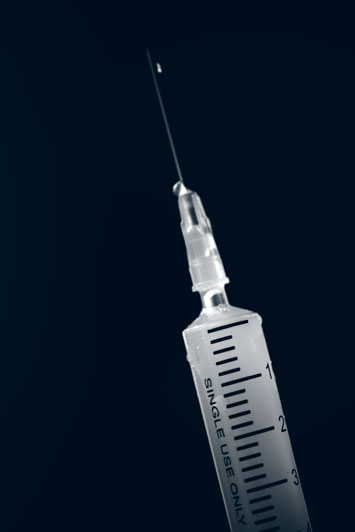Addiction to and Recovery from Addictive Analgesics
Analgesics refer to a type of drug designed to alleviate pain without causing the user to lose consciousness. Heroin, morphine, fentanyl and codeine all fall into this category. Unfortunately, opiate and heroin addiction destroy lives. Someone who relied on legal drugs to find relief after surgery may resort to harder drugs to attain that same high. This process fuels the opioid epidemic plaguing the United States. It is paramount for addicts and the loved ones of addicts to understand the addiction and recovery processes in detail to help those suffering.

Analgesic Understanding
Opiate addiction can occur from various substances. Here is how the most common analgesics affect the body.
- Heroin: Frequent heroin use alters a person’s brain functioning. Over time, the addict develops dependency and tolerance. To achieve a greater high, some people will mix heroin with crack cocaine, which is referred to as speedballing.
- Morphine: Morphine is a narcotic the body will eventually crave if you use it too often. Most people begin by using morphine legally, but they develop a physical dependence. They will experience withdrawal symptoms without it.
- Codeine: Codeine treats mild to moderate pain. In high enough doses, codeine use can lead to respiratory failure and comas. A lot of people overlook the risks because it often comes in the form of a pill or cough medicine.
- Fentanyl: Fentanyl is anywhere between 50 to 100 times more potent than morphine. Many drug dealers have begun to mix fentanyl with other drugs because it produces a more powerful high while using less product. However, this is extremely dangerous and can result in death.
Analgesic Addiction
The reason why people become addicted to opioid painkillers is that they produce a short-lived euphoria. Additionally, it is important to understand that painkillers, even after surgery, do not cure anything. They simply mask the pain. Someone who always tries to mask pain will need to take exceedingly higher doses. Eventually, the person will be unable to go through the day without the analgesic.
One of the serious risks of heroin addiction is respiratory depression. High doses of any of these drugs can cause a person’s breathing to gradually slow down. It will soon get to the point where a person’s breathing will stop entirely, and the user will die.
Analgesic Recovery
When pursuing opioid recovery, the user should anticipate the symptoms of withdrawal. Some of the most common symptoms include bone pain, muscle aches, restlessness, cold flashes, vomiting, diarrhea, insomnia and involuntary leg movements.
It is vital for addicts to seek opioid treatment. There is no shame in getting help, and many people have sought treatment before they got too far deep into addiction. Having a strong support system of friends and family is important. People can go to 12-step meetings, including Narcotics Anonymous. Relapse is a natural part of the process, so it is critical to have a relapse prevention strategy in place to help the addict if he or she does fall off the wagon.
Anyone anticipating surgery in the near future needs to take action to prevent an addiction from forming. You need to have a frank discussion with your doctor about getting pain relievers that are non-addictive. You should only use any medication you are given as directed. You should never ignore the side effects that come with medication following surgery, and you should be honest with your doctor about your pain levels throughout the ordeal.
Recovery Is Possible
Anyone suffering from addiction can seek help from the professionals at Clean Recovery Centers. We provide a “Three-Phase Approach” that consists of individual attention, group sessions and coaching. You can learn more about treatment options by contacting us online or giving us a call at your earliest convenience.


